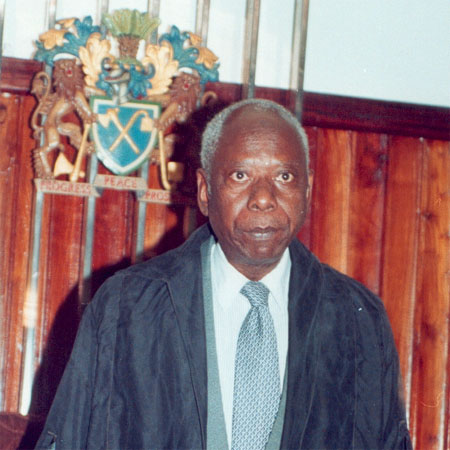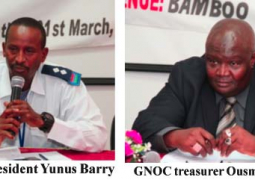
Born on
10th January 1937 at Salikene in Central Baddibu, North Bank Region, Mr Dibba
entered primary school in 1946, proceeding to High School in Armitage in the
then
From 1958
to 1959, Mr. Dibba worked for United African Company (UAC), from which he
resigned and entered politics in 1960. He was elected as Member of Parliament
for
The late Sheriff Dibba was appointed Minister of Local Government and Lands in 1962, Minister of Works and Communication in 1966 and Minister of Finance in 1968, all in the then PPP regime.
From 1970 to 1972, he became Vice President and Minister of Finance, a position he served in until his resignation in 1972.
Mr. Dibba
was appointed
In an
interview I had with him far back on 15th July 1975 in his residence in
He formed the National Convention Party (NCP) on 7th September 1975, and stood as a presidential candidate in 1977.
Mr. Dibba was arrested in the aftermath of the 1981 abortive coup led by Kukoi Samba Sanyang. He was detained for 11 months, charged with treason only to be later acquitted and discharged. While in detention in Mile II Prison, he reran in the presidential and parliamentary elections of 1982 and lost. Mr. Dibba also contested presidency in 1987 and 2001. After failing again to win the presidency in 2001, Mr Dibba led NCP to join APRC in an arrangement that many consider as an apology for a coalition.
He became Speaker of the National Assembly after the January 2002 parliamentary elections, a post that he held up to April 2006 when he was relieved of the post on allegations that he was involved in the 21st March 2006 abortive coup. He was detained for two weeks and then released. He had since maintained distance from active politics.
Hundreds of mourners attended the burial yesterday.
The late Mr. Dibba is survived by a wife and seven children.


